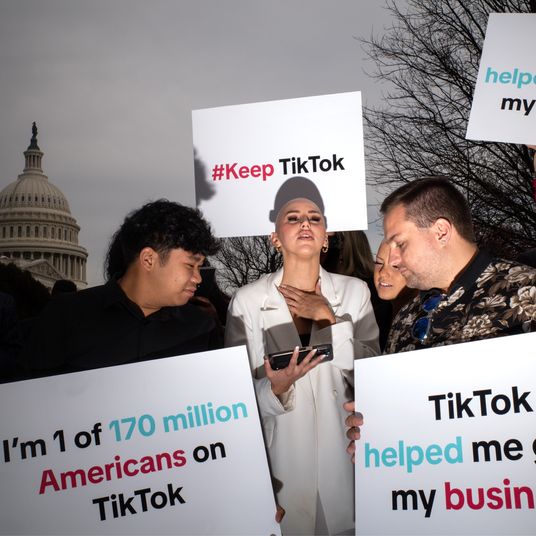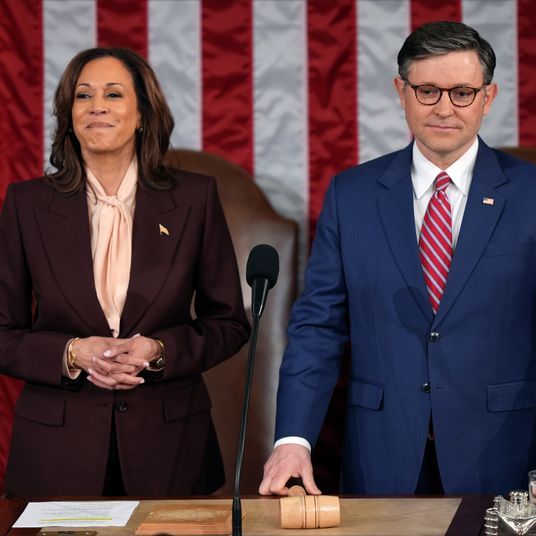
Yesterday afternoon, putting on a brave face, the online arm of MTV News announced that it would be pivoting to video. “Pivoting to video” has become a business strategy for digital publishers common enough in recent months to be a kind of cliché — a slick way to describe something else: layoffs. If your business is video, after all, anyone unfamiliar with Final Cut or Adobe Premiere will be left out in the cold. Such was the case for MTV News, where a number of writers and editors — the same ones whose hiring from sites like Grantland and Rolling Stone had been announced with fanfare by MTV just last year — announced yesterday on Twitter that they had been laid off.
What does “pivoting to video” even mean? “Pivot” is a bit of Silicon Valley jargon — it’s what companies do when their original business plans are failing and they need to change strategy entirely without saying, “Our original business plan is failing and we need to change strategy entirely.” (Instagram famously “pivoted” from a check-in app to the filter-happy social network we know today.) “Video” means just that: more videos, less text. “Pivoting to video” for media companies means, usually, allocating resources away from written journalism and toward the scripting, filming, editing, and publishing of videos.
The shift toward video began a few years ago, when Facebook changed its News Feed ranking system to weigh videos more heavily than links to outside articles. In other words, a video about the Republican health-care bill has a better chance of showing up in your News Feed than a link to a news article about the Republican health-care bill does. News publishers like Facebook because that’s the best place to find an audience; Facebook likes videos because they keep people on Facebook, and because people spend a lot of time watching them.
You know who else likes video? Advertisers. Brands prefer to buy ads against video content than text, the thinking being that consumers are more likely to sit down and pay attention to an ad when it precedes a video they want to watch than they would be if the ad simply appears next to an article they’re reading. All of which is to say: When the companies holding the purse strings suggest that your company starts doing more video content, it’s only natural to acquiesce, at least a little. Especially since you can charge a higher rate for video, and distribute some of that extra money around the company. (On top of all this, making TV-like content can attract sizable, stabilizing investments from companies like Comcast and Disney and Facebook.) For this reason, most digital-media operations have some video strategy up and running, New York included. More eyeballs presumably means more opportunities to sell ads.
But adding a video department to a healthy written-journalism business is a very different thing from “pivoting to video” by laying off reporters and editors. The growing pile of editorial corpses generated by the horror stories of MTV, Mashable, and Vocativ (two other companies that have pivoted to video alongside significant editorial restructuring in recent years) has helped shape the ever-present anxiety of people working in journalism, and turned video into a kind of pejorative for the media Twitter set.
The problem is that it’s not really clear that the lesson to take away from MTV News’ sudden demise is that written journalism is on its way out and video is on its way in. That didn’t stop some people from trying: Last night, one writer, touting his dozen years of experience, declared that nobody wanted to read anything longer than 1,000 words (he got a bit of grief for the stance). Anyone who’s seen a traffic report from a healthy digital publisher can tell you how wrong that is in general, and maybe even specifically at MTV. And anyway, much of its best writing came in sub-1,000-word packages, which were smart, taut, and efficient without overstaying their welcome. There may be a lesson in the loud, public fetishization of longform content, which might mislead detractors into imagining that all you produce is lengthy, pretentious essays.
Rather, the lesson of MTV News and its similarly pivoted peers may simply be that profit-seeking start-ups and enormous publicly traded conglomerates like Viacom, which owns MTV, are poor patrons of ambitious, sophisticated, politically driven journalism. More than once over the last year, MTV News became the target of aggressive complaint campaigns from conservatives offended by its content (ironically, the largest controversy came over a video). This headache — and the additional headache of an organizing campaign that saw employees unionize earlier this year — was probably not winning to Viacom executives wondering why their investment was not monetizing as quickly or efficiently as their cable holdings.
This isn’t to blame MTV News’ writers for attempting to assert basic workplace protections, or for voicing their political opinions. But Viacom as a whole is not known as a locus of journalistic integrity or political commitment. “Pivoting to video” might be, in this case, exactly as cynical as you might imagine, but it can also seem odd to expect anything better.





























